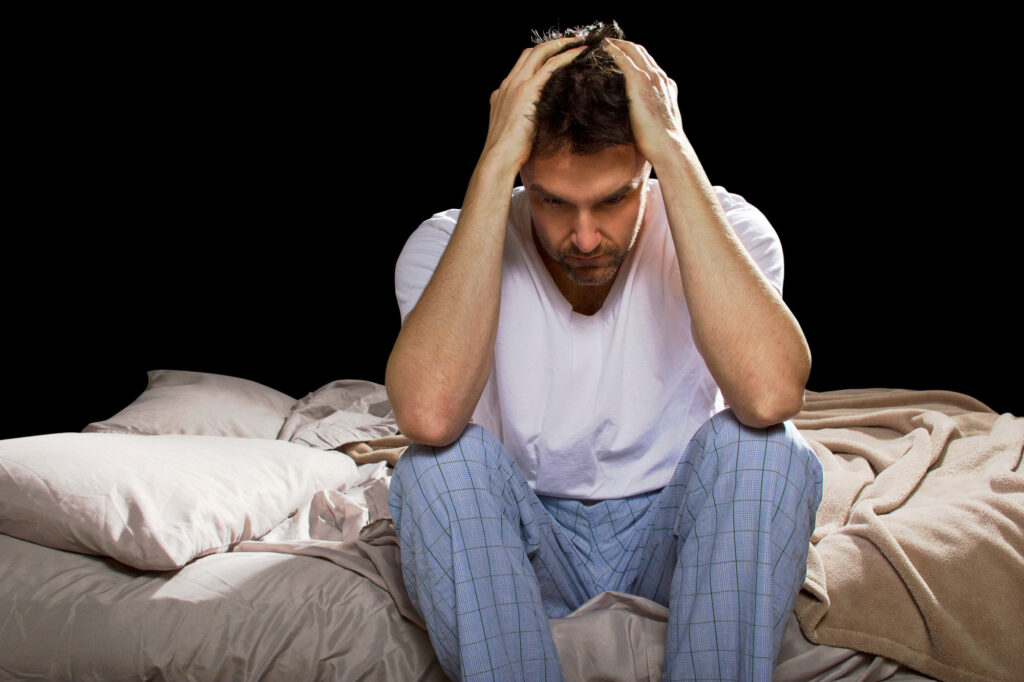We all strive to improve ourselves and our health, with each passing year, whether that is in regard to our mental health, addressing physical health issues, being more active or finding time for improved self-care. Some of us still make New Year’s Resolutions each year, but statistics show that the success rate of New Year’s Resolutions varies especially within the first few weeks. Research consistently shows that maintaining resolutions is challenging for many:
- 23% quit within the first week
- 64% make it past the first month
- 9%-12% are successful long-term or for the entire year
In fact, now the second Friday in January is called “Quitter’s Day,” because research shows that many people abandon their resolutions by then. Some of the issues relating to our failure to commit are:
- Our goals may be unrealistic or overly ambitious, which often leads to early failure.
- Our goals lack specificity with vague, obtuse goals like “get fit” or “reduce stress” without clear set plans on how to achieve those. Instead of making it hard on yourself by having goals that are too vague, set goals that are SMART: Specific, Measurable, Achievable, Realistic and Timely.
- Our goals do not address the cause and effect of the issue we are addressing. For example, if our goal is to exercise more regularly, have we addressed the reasons this has been a challenge: lack of energy levels, overscheduling issues, an inability to find an exercise regimen that we enjoy as well as being well suited for our endurance level and health limitations.
- Our progress in achieving our goals is not being properly tracked, and without monitoring progress, it’s difficult to stay on track.
So, let’s discuss the most popular resolutions of 2025 and specifically how the cause and effect of better sleep can effectively contribute to our overall goal of optimizing the health of our mind, body and our lifespans.
*Better sleep is here defined as improved quantity and quality of sleep with less sleep interruptions (including insomnia, nightmares, restless leg syndrome, or apnea events) through the night.
GOAL ONE: Want to Improve Mental Health? Get Better Sleep.
Many of us already know that focusing on our mental health improves our work life, family life, and overall outlook on who we are and where we are going. Some common ways to reduce anxiety, depression or burnout are by practicing mindfulness, managing stress,
improving work-life balance, incorporating creative outlets or activities we enjoy, improving social connection, and seeking professional help through group or individual therapy.
Did you know … better sleep can improve mental health, reduce anxiety, depression and effects of stress?

How? Sleep plays a crucial role in maintaining mental health. It impacts how we think, feel, and function daily, and its quality and quantity can significantly influence emotional well-being and mental health disorders. Sleep helps regulate the brain’s emotional centers, particularly the amygdala, which processes emotions like fear and anger. Poor sleep disrupts this regulation, leading to heightened emotional reactivity, increased irritability and mood swings.
Some common mental health manifestations of poor sleep can include:
- Anxiety Disorders: Insomnia and poor sleep quality are closely linked to increased anxiety symptoms. A lack of sleep amplifies worries and intrusive thoughts.
- Depression: Sleep disruptions are both a cause and a symptom of depression. Insomnia or excessive sleeping (hypersomnia) is commonly observed in depressive disorders.
- Bipolar Disorder: Irregular sleep patterns can trigger manic or depressive episodes in people with bipolar disorder.
- Post-Traumatic Stress Disorder (PTSD): Sleep problems, including nightmares and insomnia, are common in PTSD, exacerbating the condition.
Mental health and sleep are closely interlinked. Poor sleep worsens mental health symptoms, and untreated mental health disorders can disrupt sleep, creating a vicious cycle. Breaking this cycle by improving sleep hygiene and addressing mental health concerns is essential for overall well-being.
- STUDIES SHOW: “There’s a big relationship between psychiatric and psychological problems and sleep. So people who are depressed or have anxiety often have trouble with sleep as part of those disorders,” says Dr. Lawrence Epstein, Medical Director of Sleep Health Centers and an instructor at Harvard Medical School. He also states, “People who have problems with sleep are at increased risk for developing emotional disorders, depression, and anxiety.”
- Studies have found that 15 to 20 percent of people diagnosed with insomnia will develop major depression. (Breslau, N. et al., Sleep Disturbance and Psychiatric Disorders: A Longitudinal Epidemiological Study of Young Adults, Biological Psychiatry. Mar 1996; 39(6): 411–418.)
GOAL TWO: Want to Lose Weight & Increase Energy Levels? Get Better Sleep.
Did you know … better sleep can reduce obesity levels, decrease hunger and increase energy to achieve your exercise goals?
How? Sleep affects our weight management in several different ways. Sleep helps regulate hormones that control hunger and appetite. When you’re sleep deprived, your body produces more ghrelin, which increases appetite, and less leptin, which makes you feel less full. Sleep can increase your metabolism, making it easier to burn calories.
Lack of sleep can impair judgment and decision-making abilities due to reduced cognitive processing. So, when it comes to decisions regarding food choices, overindulging, snacking, how often and how long we exercise, a lack of sleep can contribute to making poor impulse decisions rather than ones focused on the long-term benefits.
When we are getting sufficient and uninterrupted sleep, we feel more alert, energized, and happier, which can lead to more activity, improved adherence to fitness goals, and increased motivation to get off the couch and move, walk or run.
Sleep deprivation can lead to increased late-night snacking, especially on high-carbohydrate snacks. When we are tired, our bodies are looking for alternative ways to increase energy which increases our cravings for energy-dense, high-carb foods that will give us that quick ‘pick-me-up’.
- STUDIES SHOW: Studies have shown that, “Neural changes were associated with a significant increase in appetitive desire for weight-gain promoting (high-calorie) food items following sleep loss, the magnitude of which was proportional to the subjective severity of sleep loss across participants. In addition, these changes occurred despite participants consuming more calories during the sleep deprivation session (provided in a controlled manner in order to offset any increased energy expenditure). Moreover, participants’ self-reported hunger levels were not different in the sleep rested and sleep deprivation session, suggesting that the condition of sleep loss, rather than metabolic need or hunger, as a primary factor influencing the observed changes.” – (https://pmc.ncbi.nlm.nih.gov/articles/PMC3763921/)
- Sleep and exercise have a bidirectional relationship where exercise can improve sleep quality and duration, and good sleep can enhance physical performance and recovery. Lack of sleep can negatively impact workout performance by reducing energy, increasing fatigue and soreness, impairing cognitive function, and hindering muscle recovery and growth. (https://www.physiotattva.com/blog/how-does-sleep-influence-fitness#)
- Among 245 women enrolled in a 6-month weight-loss program, better subjective sleep quality increased the likelihood of successful weight loss by 33%, as did sleeping more than 7 hours per night. (https://pmc.ncbi.nlm.nih.gov/articles/PMC3519150/)

GOAL THREE: Want to Focus on Cardiovascular or Heart Health? Get Better Sleep.
Did you know … there is a scientifically proven connection between cardiovascular health and sleep quality?
How? There are many studies that have discovered that sleep is essential for cardiovascular health. Poor sleep—whether in quality, quantity, or consistency—can increase the risk of heart disease, high blood pressure, stroke, and other cardiovascular conditions. Sleep improves blood pressure regulation by a process known as “nocturnal dipping.” This nightly rest period gives the cardiovascular system a chance to recover from daily stress.
Sleep allows the heart rate to slow down, reducing strain on the heart. On the other hand, sleep deprivation can lead to an elevated resting heart rate and contributes to heart rhythm irregularities, such as atrial fibrillation, which increases the risk of stroke.
Sleep helps regulate cortisol, a stress hormone that raises blood pressure and heart rate when elevated. Chronic sleep deprivation can lead to persistently high cortisol levels, increasing cardiovascular strain. And poor sleep affects insulin sensitivity, contributing to higher blood sugar levels and an increased risk of diabetes—a condition closely linked to heart disease.
Adequate sleep reduces inflammation throughout the body, including in the blood vessels. In contrast, poor sleep triggers chronic low-grade inflammation, which damages blood vessel walls and accelerates atherosclerosis (plaque buildup in arteries); and can increase levels of inflammatory markers like C-reactive protein (CRP), which are associated with higher heart disease risk.
And lastly, during deep sleep (slow-wave sleep), the body focuses on cell repair and maintenance, including in the heart and blood vessels. Poor sleep reduces the time spent in this restorative phase, impairing the body’s ability to repair cardiovascular tissues.
STUDIES SHOW: Studies have shown that sleep deprivation is associated with increased risk for hypertensive heart disease. (https://pmc.ncbi.nlm.nih.gov/articles/PMC9879308/)
- Short Sleep (<6 hours per night): Increases the risk of coronary artery disease, heart attacks, and strokes.
- Long Sleep (>9 hours per night): May also be associated with cardiovascular risks, possibly due to underlying health conditions.
- Optimal Sleep (7–8 hours per night): Associated with the lowest risk of cardiovascular events.
When clocks “spring forward” in March for daylight saving time, we lose an hour of sleep, and the change can negatively affect our heart. Studies show people are more at risk of heart problems, and an increase in the number of heart attacks. (https://pubmed.ncbi.nlm.nih.gov/25332784/) Sleep can have both positive and negative impacts on the heart, including:
- 24% more heart attacks for the first 3-4 days after the clocks change in March
- 21% reduction in heart attack risks once we gain an hour of sleep in November after clock “fall back”
- Adults with 5 hours of sleep or less have a 200% to 300% higher risk of coronary artery build up in arteries, meaning that sleep deprivation can increase coronary artery disease
GOAL FOUR: Want to Make Better Decisions Regarding your Finances, Time Management, and Career Advancement? Get Better Sleep.
Did you know …. Improved sleep can improve cognitive function and decision making?
How? Sleep significantly impacts cognitive function by playing a crucial role in memory consolidation, allowing the brain to process and store information learned during the day. On the other hand, inadequate sleep can lead to difficulties with learning, attention, decision-making, and overall cognitive performance; essentially, not getting enough sleep can impair your ability to think clearly, remember things, and react quickly.
Sleep deprivation can make it harder to make good decisions because it dulls activity in the frontal lobe of your brain. Sleep deprivation significantly impacts attention span, making it harder to concentrate on tasks and stay focused. Insufficient sleep can also lead to difficulties managing emotions, making individuals more susceptible to mood swings and impairing interpersonal relationships.
Sleep is essential for acquiring new information and effectively solving problems. So, when it comes to decisions regarding our financial health, we are less likely to make impulse buying decisions. When it comes to career advancement, we are more equipped to learn new skills, respond more quickly to tasks and projects, increase our ability to troubleshoot and resolve issues, manage professional relationships, and exude confidence. When it comes to time management, we have improved focus to start and complete tasks on our to do list, we make better decisions about removing time-wasters and have the emotional intelligence to calmly address scheduling conflicts.
STUDIES SHOW: Studies have found that longer or shorter sleep duration and presence of daytime dozing were associated with lower cognition. Those who reported sleeping > 9 h/day had 11.8% lower visual memory, 3.4% slower reaction time, 5.6% lower numeric memory, and 6.6% lower fluid intelligence scores than those who slept 6–9 h/day. (https://www.nature.com/articles/s41598-023-27913-9#)

GOAL FIVE: Want to Get Better Sleep in 2025? Focus on Sleep Hygiene.
Did you know … addressing the various factors of sleep hygiene can improve the sleep quality and quantity?
*Sleep hygiene refers to healthy habits, behaviors and environmental factors that can be adjusted to help you have a good night’s sleep.
How? Sleep hygiene significantly impacts sleep quality by creating a consistent and conducive environment for sleep, which can lead to easier falling asleep, staying asleep through the night, and experiencing deeper, more restful sleep. In contrast, poor sleep hygiene habits often result in difficulty falling asleep, frequent nighttime awakenings, and overall poor sleep quality. Here are some recommended sleep hygienic habits and practices that promote consistent, high-quality sleep:
- Stick to a Consistent Schedule: Aim for 7–8 hours of sleep every night and maintain a regular bedtime and wake-up time. Your body’s internal clock (circadian rhythm) thrives on regularity so going to bed and waking up at the same time daily (even on weekends) helps regulate sleep.
- Create a Sleep-Friendly Environment: Keep your bedroom dark, cool, and quiet because a comfortable, distraction-free bedroom promotes better sleep. Some tips include: use blackout curtains or a sleep mask to block light, use earplugs or a white noise machine if noise is an issue, invest in a good-quality mattress and pillows, and keep your bedroom cool, ideally around 60–67°F (15–19°C).
- Limit Stimulants: Certain foods and drinks can disrupt sleep if consumed too close to bedtime so avoid heavy meals, caffeine, and nicotine in the evening; limit alcohol, as it can disrupt deep sleep stages; and consider a light snack if you’re hungry, such as a banana or a handful of nuts, which can promote sleep.
- Limit Screen Time Before Bed: Blue light from phones, tablets, and TVs interferes with melatonin production, making it harder to fall asleep. So, it’s recommended to avoid screens for at least 1 hour before bed. If you must use devices, enable a blue-light filter or wear blue-light-blocking glasses.
- Adopt Healthy Lifestyle Habits: Combine good sleep hygiene with a balanced diet, regular exercise, and avoiding smoking or excessive alcohol use.
- Manage Stress: Practice relaxation techniques like meditation or deep breathing before bed. A calming pre-sleep routine signals your body that it’s time to wind down, for example reading a book, taking a warm bath, practicing mindfulness, meditation or gentle yoga.
- Address Sleep Disorders: If you suspect conditions like sleep apnea or insomnia, seek medical evaluation and treatment. It’s essential for individuals experiencing sleep problems to seek evaluation and treatment from sleep physicians and specialists, such as those at Everything Sleep Center in Boise, Idaho.
STUDIES SHOW: A study on sleep hygiene practices revealed, “There was a significant association between the frequency of sleep problems and poor sleep hygiene practices. The percentage of subjects who had problems sleeping during the past three months was significantly higher among those having poor sleep hygiene practices (76.5%) than their counterparts (56.1%). The rates of excessive or severe daytime sleepiness were significantly higher among individuals with poor hygiene practices. (https://pmc.ncbi.nlm.nih.gov/articles/PMC10105495)
At Everything Sleep Idaho, we play a crucial role in helping individuals address sleep disorders and improve their overall sleep quality. We will help diagnose, evaluate and treat your particular sleep disorder. Contact us today.








